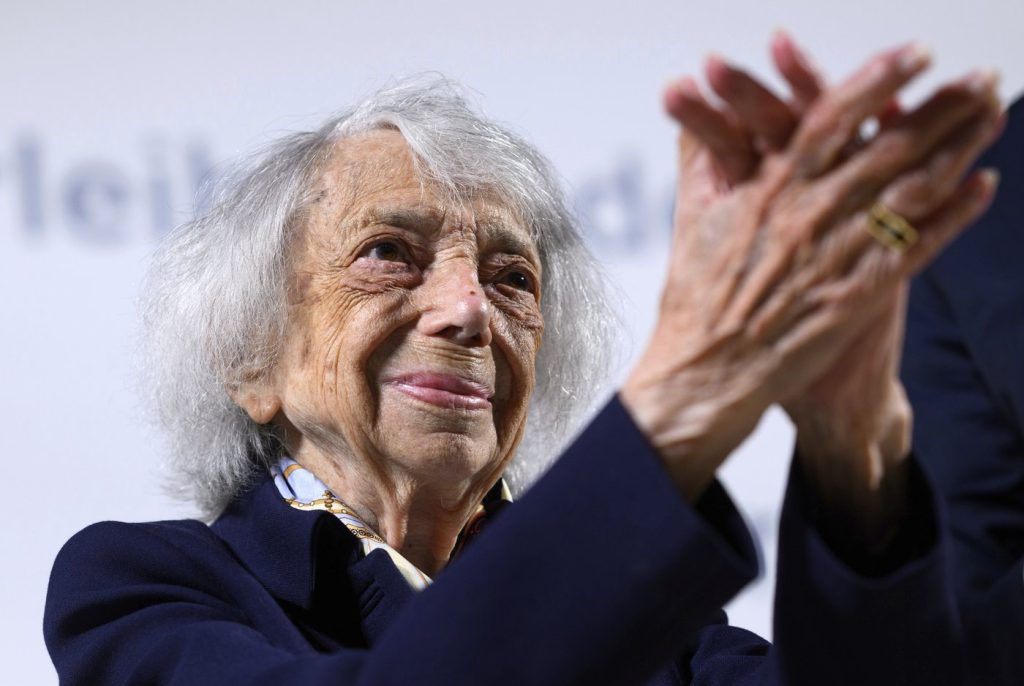BERLIN (AP) – Margot Friedländer, a German Jew and a notable witness to Nazi persecution, passed away on Friday at the age of 103. Her death was announced by the Margot Friedländer Foundation in Berlin, although details regarding the cause of death and location were not immediately disclosed. She died during the week of the 80th anniversary of Nazi Germany's unconditional surrender in World War II.
Friedländer spent a significant portion of her life in the United States before returning to Berlin in her 80s. She was widely honored for her contributions to Holocaust education and remembrance, receiving Germany's highest honor and a statue at Berlin's City Hall. At a 2018 event at Berlin's Jewish Museum, she expressed that her efforts to speak about the Holocaust gave her strength, stating, "What I do gives me my strength and probably also my energy, because I speak for those who can no longer speak."
German President Frank-Walter Steinmeier offered his condolences, emphasizing that Friedländer's journey provided Germany with a path to reconciliation, despite the horrors she endured. He noted that the country could not adequately express its gratitude for her contributions to remembrance and education.
A recent report indicated that over 200,000 Jewish Holocaust survivors are alive today, but it warned that 70% of them could be gone within the next decade. Friedländer's legacy as a survivor and educator is particularly poignant as the number of living witnesses diminishes.
Born Margot Bendheim on November 5, 1921, in Berlin, Friedländer grew up in a family deeply affected by the rise of the Nazi regime. Her father, Artur Bendheim, owned a shop and had fought in World War I. Initially, he believed that the Nazis would not target them, saying, "They don't mean us; We’re Germans." However, the family later faced increasing persecution, culminating in their forced relocation to a so-called "Jewish apartment" in 1941 and mandatory nighttime labor at a metal factory.
In January 1943, just as Friedländer's family planned to escape Berlin, her younger brother Ralph was taken by the Gestapo, and shortly after, her mother decided to accompany him. Margot carried her mother's last message—"Try to make your life"—which later became the title of her autobiography. She concealed her identity and avoided capture by removing her yellow star and dyeing her hair red, believing it would help her blend in.
Friedländer's evasion came to an end in April 1944 when she was detained by police following an identity check. Choosing to reveal her Jewish identity, she felt a profound sense of separation from her people, burdened by guilt for not joining her mother and brother.
She was sent to the Theresienstadt concentration camp in June 1944. In the spring of 1945, she witnessed the arrival of emaciated prisoners from death marches out of Auschwitz. It was at this moment that she comprehended the full extent of the genocide, realizing she would never see her mother and brother again—both had perished in Auschwitz.
After the camp was liberated, Friedländer married Adolf Friedländer, a fellow survivor. The couple emigrated to the United States in 1946 after spending months in a displaced persons camp. They became U.S. citizens while marginally integrating into American life. Margot worked as a tailor and operated a travel agency.
In 2003, Friedländer returned to Germany for the first time since the war, marking a significant event in her life. Eventually, she relocated back to Berlin in 2010, where she shared her story with students and was decorated with various honors, including Germany's Order of Merit. In 2018, she received recognition as a citizen of honor in Berlin.
During a public address in 2018, she poignantly noted the dwindling number of Holocaust survivors, imploring her audience to become the witnesses to the history that survivors could no longer convey. Friedländer's enduring legacy is one of resilience, education, and a commitment to ensure the memories of those lost are not forgotten.












